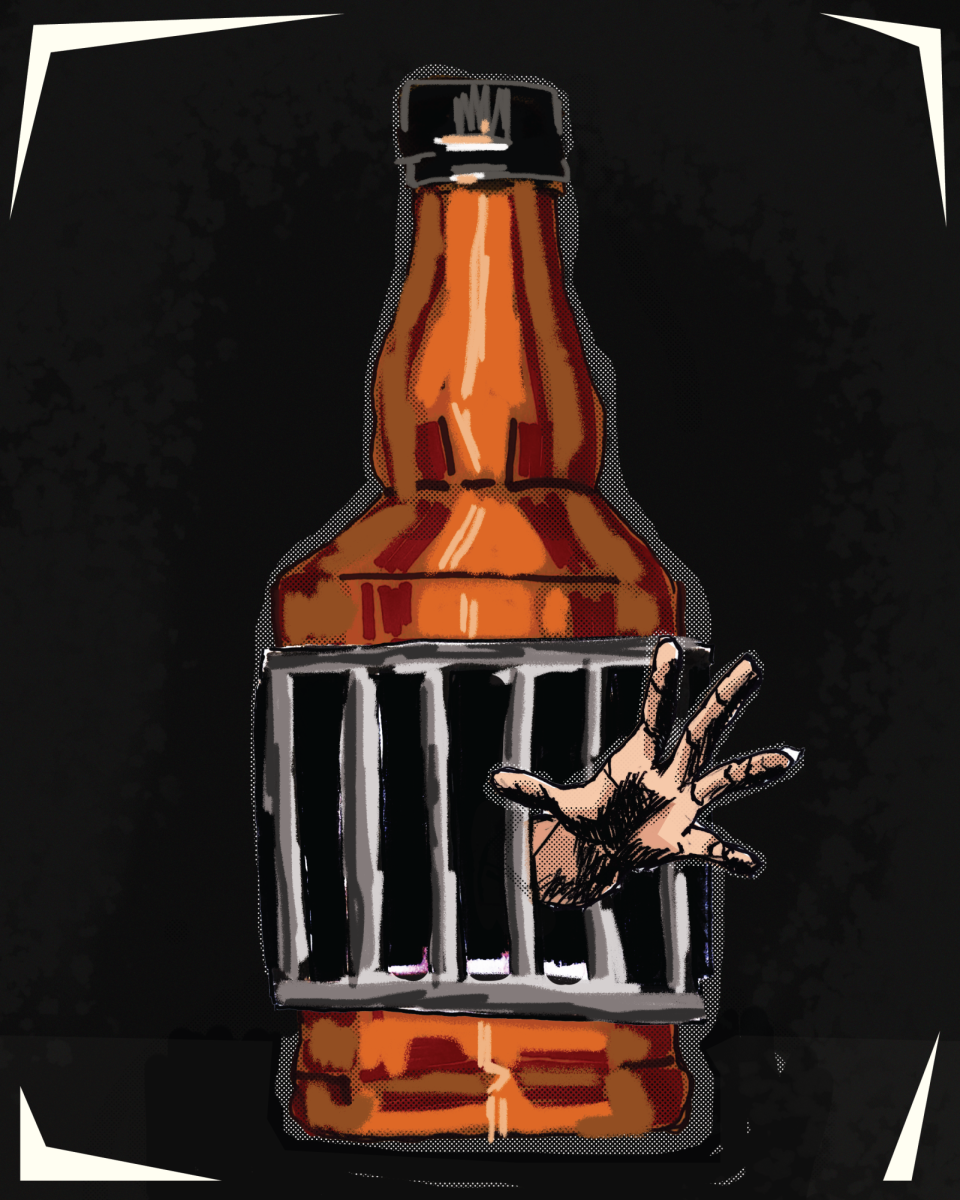Colleges implement dry campus policies to protect students. However, reports indicate these policies do little to solve underlying problems.
The University of Utah enforces regulations on alcohol consumption. Federal laws in Utah also require higher education institutions to have a Drug and Alcohol Abuse Prevention Program — DAAPP. However, these policies lack specific guidelines to address student alcohol issues effectively. Merely prohibiting on-campus drinking through written policies fails to address the core problem.
The U needs more proactive measures to enhance student safety and promote a healthier campus environment. Instead of relying on ineffective policies, we need more resources and action-oriented solutions.
College Drinking Culture
The prevalence of harmful drinking culture among college students poses a significant public health concern in the U.S. A 2022 report says approximately 29% of college students aged 18 to 22 who consume alcohol engage in binge drinking. Some develop drinking habits before entering college while others are influenced by the college environment. However, strict regulations often fail to deter these behaviors.
Utah exemplifies this paradox. Despite having stringent alcohol laws and a reputation for low alcohol consumption, the state ranks seventh in the nation for alcohol poisoning deaths, with more than 900 deaths annually. This highlights a serious disconnect, as many drinkers remain unaware of their risky behaviors. Furthermore, Utahns aged 18 to 34 exhibit a disproportionately high rate of binge drinking compared to other age groups. This shows that low overall alcohol consumption does not ensure safety from alcohol-related issues.
John Stevens, a U graduate who grew up in Utah and worked for five semesters as a residential assistant in housing, said students struggle to recognize their drinking habits and limitations.
“People in Utah aren’t exposed to drinking while growing up, so it’s difficult for students to understand their limits and recognize the risk of alcohol poisoning,” Stevens said.
Ineffectiveness of Campus Policies
U students are not exceptions. As students from diverse cultures and backgrounds, including those who can legally drink, converge on campus, resisting drinking habits becomes more challenging. Despite being a dry campus, the U’s policies appear ineffective. While the U strictly regulates alcohol consumption, a recent report from the University Department of Public Safety revealed 389 judicial referrals for alcohol and three on-campus arrests in 2022. This indicates a weak correlation between policies and consequences.
Restricting alcohol consumption merely imposes a drinking ban without addressing underlying issues. Studies demonstrate that outright bans do not effectively reduce heavy drinking. The Housing and Residential Education homepage prominently declares the U as a dry campus and lists violations but fails to provide additional resources for students dealing with habitual drinking problems.
“We do have bulletin boards to guide students in the right direction, but ultimately, I think it comes down to the individual,” Stevens said.
We Need More Resources
The U Department of Public Health offers campus-related resources focused on promoting a healthy campus environment. Raising awareness of alcohol-related crimes like sexual assaults and violence is crucial. However, educating students about the direct impacts of alcohol on their health is equally vital to empower them to address their issues proactively. We require more educational resources not only to promote responsible decision-making and safer environments but also to address individual challenges.
Approximately 150,000 college students experience alcohol-related health problems every year. This includes health complications such as liver damage and inflammation. Heavy drinking also can lead to alcohol dependency and potentially alcoholism. To foster a safer campus, we must first encourage students to recognize their unhealthy habits and potential consequences rather than solely enforcing consumption restrictions.
“I think it would be more effective to discuss these issues through a student leader-to-student relationship rather than implementing authoritative bans,” said Payton Kelley, a student at the U currently working as a community advisor for housing.
Education and training alone are insufficient. The adoption and promotion of additional treatment services are essential. This entails increasing the number of health professionals and counselors available. Providing tangible resources is crucial instead of leaving students to confront their issues in isolation. Furthermore, proactive promotion efforts are needed to reach those who may not recognize their behaviors.
Maria Hwang, a senior studying communication at the U, said the campus does not effectively promote medical treatments or counseling services for student health regarding alcohol issues.
“The campus has resources to assist students with their risky behaviors, but they are not actively promoted through social media or email. It’s difficult for students to identify the resources they need,” Hwang said.
Stevens said the campus generally focuses on mental health.
“I can’t remember going over anything specific in training about residents’ alcoholism and addiction recovery,” Stevens said.
The dry campus approach fails to alter students’ attitudes toward pre-existing college drinking cultures and habits.
If the U truly wants to address alcohol-related issues, it should focus on understanding the root causes of these behaviors and how to support students in addressing their individual challenges. Simply banning alcohol without offering viable solutions is irresponsible.




